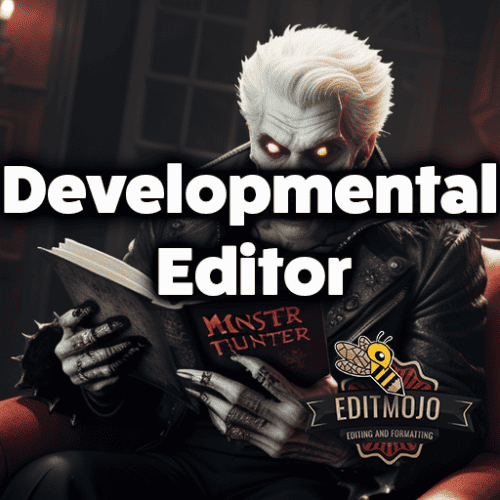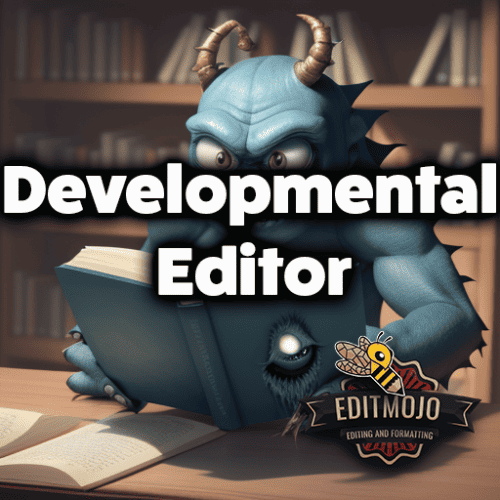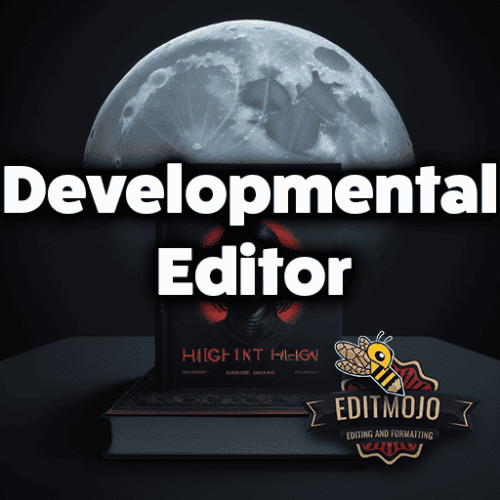Developmental editor
Developmental editor. The written word is a marvel that can transport us into different worlds, make us laugh, cry, and question. Behind every captivating story often lies a less spoken hero – the developmental editor. Working meticulously behind the scenes, the developmental editor sculpts an author’s raw narrative into a masterpiece. But what really does a developmental editor do? How do they operate? Today, let’s delve into the fascinating world of a developmental editor.
Key Takeaways Table
| Key Takeaways | |
|---|---|
| Role of a Developmental Editor | A developmental editor plays a critical role in shaping a manuscript from the initial draft stage to the final product. They work on the macro level aspects like plot, pacing, character development, theme, and voice. |
| Unique Skillset | Developmental editors need a keen understanding of storytelling, critical analysis skills, and the ability to provide constructive feedback. |
| Impact of a Developmental Editor | A good developmental editor can elevate a story from good to great. Their involvement significantly impacts the reader’s experience. |
| Working with a Developmental Editor | It’s advisable to bring a developmental editor once you have a rough draft. The selection should be based on the editor’s understanding of your genre and style. |
| Becoming a Developmental Editor | Requires a blend of hard skills such as a strong understanding of narrative structure, and soft skills like diplomacy and communication. Continued learning and networking are essential to success. |
| Role of Technology | With digital advancements, the process of editing has become more efficient. However, the creative and analytical input of a human editor remains irreplaceable. |
The Journey of a Developmental Editor
The work of a developmental editor isn’t confined to a single stage of the book-making process. It stretches from the conception of the idea to the final draft.
Pre-editing: An Author’s Guide
Before the author puts pen to paper (or fingers to keyboard), a developmental editor steps in. They work closely with the author to outline the plot, build characters, and establish the overall structure of the narrative. They ensure the story has a strong backbone before the author begins the arduous task of writing.
In J.K. Rowling’s famous Harry Potter series, it’s said that Rowling and her editor worked together to map out the seven-book series before she wrote the first novel. This highlights the pivotal role of a developmental editor in the pre-editing phase.

The Editing Process: More Than Just Proofreading
Once the manuscript is written, the real magic begins. The developmental editor examines the story on a macro level, looking at the plot, pacing, character development, theme, and voice. They don’t just focus on grammar or syntax; they’re involved in crafting the story, making it logical, engaging, and marketable.
For instance, consider Stephen King’s “The Stand”. His editor suggested cutting down the length of the novel, making it more reader-friendly. King initially resisted but ultimately agreed, resulting in a much tighter, cohesive narrative.
Post-editing: The Final Touches
After the back-and-forth with the author and multiple revisions, the developmental editor ensures that the story aligns with the intended vision. It’s their job to guarantee that the final draft is ready for the next steps in the publication process.
Unique Skill Set of a Developmental Editor
A developmental editor is akin to a diamond cutter, expertly shaping a rough diamond into a brilliant gem. It takes a unique skill set to do so.
Intuitive Understanding of Storytelling
Good developmental editors have an instinctive understanding of what makes a story work. They know how to identify plot holes, redundant scenes, weak character arcs, and balance these elements to create a compelling narrative.
Critical Analysis
This role requires a keen eye for detail. Developmental editors must critically analyze a narrative, identifying strengths and weaknesses. They offer feedback to the author on how to enhance the narrative without diluting the author’s unique voice.
Constructive Communication
This perhaps is one of the most crucial skills. Constructive feedback can inspire an author to improve their work, while harsh criticism might discourage creativity. Remember, even the most renowned authors like Ernest Hemingway and F. Scott Fitzgerald had developmental editors who provided invaluable feedback in a constructive manner.

The Impact of a Developmental Editor
An apt comparison would be the effect a movie director has on a film. They don’t write the script or act in the scenes, but their influence is visible in every frame.
Case Study: ‘To Kill a Mockingbird’
Harper Lee’s classic “To Kill a Mockingbird” offers a perfect case study. Lee’s editor, Tay Hohoff, saw potential in her manuscript and guided Lee over two years of revisions to produce the masterpiece we know today.
From Good to Great
While a good book can be penned without a developmental editor, they have the ability to elevate it to greatness. They can transform a good narrative into an unforgettable experience for the reader.
Working with a Developmental Editor
Engaging with a developmental editor is an investment in your book’s potential. But when and how should you seek their assistance?
When to Hire
It’s advisable to bring in a developmental editor once you have a rough draft. They can help shape your narrative and advise on the strengths and weaknesses of your manuscript.
Choosing the Right Editor
Selecting a developmental editor is a subjective process. It’s crucial to find someone who understands your vision, writing style, and the genre of your book. Look for testimonials, sample edits, and have an open discussion about your project before you decide.
Building a Productive Relationship
A successful author-editor relationship is a collaboration. Open communication, mutual respect, and understanding form the bedrock of such a relationship. The famous collaboration between author Toni Morrison and her editor Robert Gottlieb is a perfect example of a fruitful author-editor partnership.
Becoming a Developmental Editor
With a keen eye for storytelling and a love for books, becoming a developmental editor can be a rewarding career.

Necessary Skills
To excel, you’d need a strong understanding of narrative structure, character development, pacing, and themes. Soft skills like diplomacy, communication, and problem-solving are equally important.
Training and Education
While there’s no set educational path to become a developmental editor, degrees in literature, creative writing, journalism, or related fields can be beneficial. There are also numerous courses and certifications available, such as those offered by the Editorial Freelancers Association.
Developmental Editing in the Digital Age
Technology has significantly impacted developmental editing.
The Role of Technology
From using track changes in Word to employing editing software like Grammarly and ProWritingAid, technology has made the editing process more efficient.
Challenges and Opportunities
The digital era has seen a rise in self-publishing, increasing the demand for freelance developmental editors. However, the challenge lies in building a reputation in a highly competitive market.
In conclusion, the developmental editor is an unsung hero in the literary world. Their skillful work shapes the narrative, helping authors create the best version of their vision. The next time you’re engrossed in a gripping tale, take a moment to appreciate the hands that helped shape the narrative. The magic touch of a developmental editor may be more influential than you think!
For more insights on developmental editing or if you’re considering becoming a developmental editor, check out these recommended resources.
Sure, I can continue with a more detailed overview of the industry and how one can succeed as a developmental editor.
How to Thrive as a Developmental Editor
Building a Portfolio
As a developmental editor, your portfolio is your calling card. Start by editing different types of manuscripts to showcase your versatility. This could range from novels and short stories to non-fiction and academic articles. If you’re just starting out, consider volunteering for small editing projects or offering discounted services to build your reputation.
Networking
Make connections within the publishing industry. Attend literary events, join professional organizations, participate in writer’s forums and engage in online communities. Networking can open doors to opportunities you might not find elsewhere.
Continuing Education
Even experienced editors need to continue learning and refining their skills. Attend workshops, take online courses, and keep up with industry trends.
The Evolution of Developmental Editing
Changes in the Industry
The rise of self-publishing has created an increased demand for developmental editors. More authors are realizing the value of having their work professionally edited before publication, leading to new opportunities for editors.
The Future of Developmental Editing
The role of the developmental editor is evolving with technological advancements. New software tools are making the editing process more streamlined, but they cannot replace the creative and analytical input of a human editor. Hence, the importance of a developmental editor’s work in shaping a manuscript into a polished piece of art remains indispensable.
Conclusion: An Ode to the Developmental Editor
In the realm of literature, an author is the star, their book the magnum opus. But behind the scenes, the developmental editor is the conductor, skillfully orchestrating every element to create a symphony that strikes a chord with the reader. They weave the narrative thread, polish the text, and ensure the story is the best version it can be.
So, the next time you dive into a gripping novel or a thought-provoking non-fiction piece, take a moment to acknowledge the invisible craftsperson whose diligent work has shaped the text. That is the power and the art of a developmental editor.
For those interested in embarking on a journey as a developmental editor or authors seeking to work with one, explore the links below for a deeper understanding and resources. Remember, a book is not just the product of the writer but also of the people who shape it, most notably, the developmental editor.
Top Five Questions and Answers Table
| Questions | Answers |
|---|---|
| What is the role of a developmental editor? | They work closely with authors to shape the narrative structure, plot, characters, and voice of a manuscript to ensure it aligns with the intended vision. |
| When should an author hire a developmental editor? | Once the author has a rough draft, it’s an ideal time to bring in a developmental editor to shape the narrative. |
| What skills does a developmental editor need? | They need an understanding of storytelling, critical analysis skills, and the ability to provide constructive feedback, alongside soft skills like diplomacy and communication. |
| How has technology influenced developmental editing? | Technology has made the editing process more efficient through tools like track changes and editing software, while also opening opportunities in the self-publishing sector. |
| How can one become a developmental editor? | While there’s no set educational path, degrees in literature, creative writing, or journalism can be beneficial. Additionally, taking relevant courses and certifications, building a portfolio, and networking can help. |
Top Seven Resources for Further Reading
